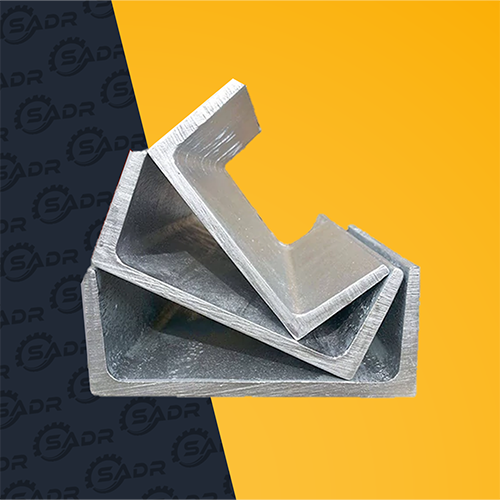


Types of Steel Channels: Steel channels are available in different sizes, weights, and grades, with the most common types being:
Lightweight Steel Channels: These are ideal for general construction and lighter applications where reduced load-bearing capacity is required.
Heavy-duty Steel Channels: Designed for industrial and structural applications requiring a higher load-bearing capacity and resistance to deformation.
Key Features:
High Strength: Steel channels provide excellent strength and durability, making them suitable for load-bearing applications.
Versatility: These channels are widely used in various industries such as construction, manufacturing, and transportation.
Corrosion Resistance: Steel channels can be coated with a galvanized finish to ensure corrosion resistance, making them durable in harsh environments.
Customizable: Available in a variety of sizes, lengths, and specifications to fit specific project requirements.
Standard Specifications: Our steel channels comply with international standards, including ASTM A36, ISO 9001, and JIS G3101, ensuring the highest quality and performance.
Applications: Steel channels are used across various industries for their strength and adaptability:
Construction Industry: For creating structural frameworks, beams, and supports in buildings, bridges, and infrastructure projects.
Industrial Applications: Used in manufacturing machinery, equipment, and other heavy-duty applications requiring structural integrity.
Transportation & Infrastructure: Steel channels are crucial for the construction of roads, railways, bridges, and other essential infrastructure.
Marine & Offshore: Frequently used in the construction of piers, docks, and marine structures that require resilience against environmental stress.
Why Choose Steel Channels from Sadr Steels? At Sadr Steels, we provide high-quality steel channels that meet the most demanding project requirements. We ensure fast delivery and competitive pricing to global markets, backed by our efficient supply chain and commitment to customer satisfaction.
Global Reach: We offer steel channels to customers worldwide, ensuring timely delivery and competitive pricing.
Quality Assurance: Our steel channels adhere to international standards like ASTM, ISO, and JIS, ensuring high-quality performance and durability.
Reliable Supply Chain: With a wide network of trusted manufacturers, we ensure a steady and reliable supply of steel channels for all types of projects.
Compliance with International Standards: Our steel channels are produced in compliance with international standards such as:
ASTM (American Society for Testing and Materials)
ISO (International Organization for Standardization)
JIS (Japanese Industrial Standards)
BS (British Standards)
These certifications guarantee that our steel channels meet the necessary strength, durability, and performance specifications required for various applications.
FAQ:
What are the different types of steel channels? Steel channels come in lightweight and heavy-duty variations. Lightweight steel channels are used for general construction, while heavy-duty steel channels are used in industrial and structural applications requiring greater strength.
What industries use steel channels? Steel channels are widely used in construction, industrial manufacturing, transportation, and infrastructure projects. They are essential for load-bearing applications in various fields.
Are steel channels customizable? Yes, steel channels are available in different sizes, grades, and specifications to meet specific project requirements. Custom lengths and finishes can be requested based on your needs.
What standards do Sadr Steels’ channels meet? Our steel channels comply with globally recognized standards, including ASTM, ISO, JIS, and BS, ensuring that they meet the highest performance and durability criteria for your projects.
What is the difference between lightweight and heavy-duty steel channels? Lightweight steel channels are designed for general construction and lighter applications. Heavy-duty steel channels are stronger, capable of handling larger loads, and are ideal for industrial and structural use.
All set to place your order?
Order now